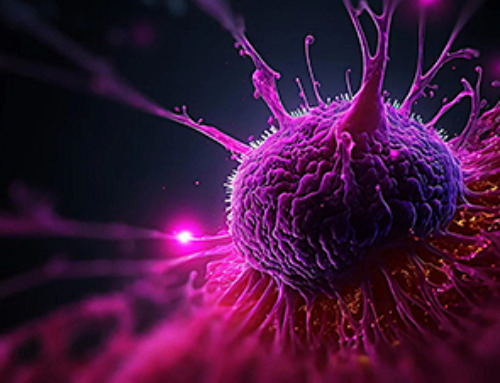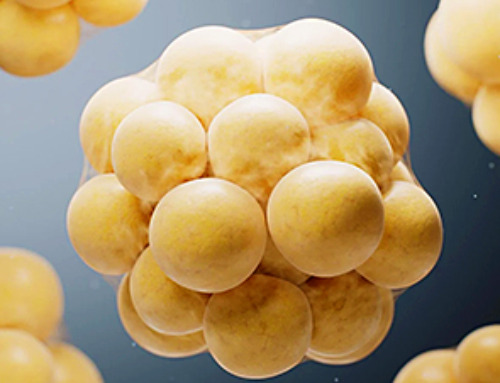| (Nanowerk News) Cleaning up after a major oil spill is a long, expensive process, and the damage to a coastal region’s ecosystem can be significant. This is especially true for the world’s Arctic region, where newly opened sea lanes will expose remote shorelines to increased risks due to an anticipated rise in sea traffic. | |
| Current mitigation techniques even in heavily populated regions face serious limitations, including low oil absorption capacity, potential toxicity to marine life and a slow remediation process. | |
| However, advances in nanotechnology may provide solutions that are more effective, safer and work much faster than current methods. That’s according to a new paper in Environmental Science: Nano (“Nanotechnology for oil spill response and cleanup in coastal regions”) by a Concordia-led team of researchers. | |
| “Using nanomaterials as a response method has emerged as a promising sustainable approach,” says lead author Huifang Bi, a PhD candidate in the Department of Building, Civil and Environmental Engineering at the Gina Cody School of Engineering and Computer Science. | |
| “This paper synthesizes, reviews and analyzes between 40 and 50 studies on the subject to give us a big-picture look of the status of nanotechnologies in coastal oil spill response. At the same time, we are also presenting our own suggestions and identifying research gaps between using nanomaterials in the lab and how they can be used in real-world applications.” | |
| She adds that nanomaterials are being widely studied to combat marine oil spills, but she is focusing specifically on coastline remediation. She estimates that more than 90 per cent of the papers she reviewed were exclusively lab-based and not yet available for field use. | |
Encouraging results need field testing |
|
| The unique properties found in nanomaterials can help mitigation across different remediation efforts. These include surface washing agents, dispersants, sorbents and bioremediation. Each method has its own strengths and drawbacks that can be improved with the use of nanomaterials. | |
| For instance, replacing synthetic surfactants and organic solvents with bio-based nanomaterials has shown to be both highly effective at removing oil and to produce less toxic substances that can harm coastal biotas. | |
| Nanomaterials can also be used in dispersants. Clay-based nanomaterials can stabilize oil particles in an emulsion, resulting in a larger area for oil-eating bacteria to grow and accelerating oil disappearance. In sorbents like aerogels or foams, nanomaterials can improve the removal of oil from water by absorption, adsorption or a combination thanks to large surface areas and a high number of sorption sites. | |
| Finally, they can also be used to accelerate bioremediation, a technique that uses microorganisms to break down harmful pollutants like oil into less harmful or harmless substances. | |
| “While these lab-based results are encouraging, we need to exercise caution,” warns Bi, winner of a 2023 Vanier Canada Graduate Scholarship. “We should prioritize the use of sustainable and eco-friendly nanomaterials to minimize environmental risks and ensure the responsible application of nanotechnology in coastal oil spill response. We also need to scale up testing to measure this efficacy in field tests.” | |
| According to Bi’s thesis supervisor Chunjiang An, an associate professor in the same department, the emergence of nanomaterials as oil spill remediation tools is coming at a critical time. | |
| “We are facing many new challenges, with threats of oil spills now affecting both traditional and new regions, including the Arctic,” he says. “We need to work with governments and the private sector to ensure that they are aware of these technologies and can further include them in their future remediation guidelines.” |
| Source: By Patrick Lejtenyi, Concordia University (Note: Content may be edited for style and length) |
News
NanoMedical Brain/Cloud Interface – Explorations and Implications. A new book from Frank Boehm
New book from Frank Boehm, NanoappsMedical Inc Founder: This book explores the future hypothetical possibility that the cerebral cortex of the human brain might be seamlessly, safely, and securely connected with the Cloud via [...]
Deadly Pancreatic Cancer Found To “Wire Itself” Into the Body’s Nerves
A newly discovered link between pancreatic cancer and neural signaling reveals a promising drug target that slows tumor growth by blocking glutamate uptake. Pancreatic cancer is among the most deadly cancers, and scientists are [...]
This Simple Brain Exercise May Protect Against Dementia for 20 Years
A long-running study following thousands of older adults suggests that a relatively brief period of targeted brain training may have effects that last decades. Starting in the late 1990s, close to 3,000 older adults [...]
Scientists Crack a 50-Year Tissue Mystery With Major Cancer Implications
Researchers have resolved a 50-year-old scientific mystery by identifying the molecular mechanism that allows tissues to regenerate after severe damage. The discovery could help guide future treatments aimed at reducing the risk of cancer [...]
This New Blood Test Can Detect Cancer Before Tumors Appear
A new CRISPR-powered light sensor can detect the faintest whispers of cancer in a single drop of blood. Scientists have created an advanced light-based sensor capable of identifying extremely small amounts of cancer biomarkers [...]
Blindness Breakthrough? This Snail Regrows Eyes in 30 Days
A snail that regrows its eyes may hold the genetic clues to restoring human sight. Human eyes are intricate organs that cannot regrow once damaged. Surprisingly, they share key structural features with the eyes [...]
This Is Why the Same Virus Hits People So Differently
Scientists have mapped how genetics and life experiences leave lasting epigenetic marks on immune cells. The discovery helps explain why people respond so differently to the same infections and could lead to more personalized [...]
Rejuvenating neurons restores learning and memory in mice
EPFL scientists report that briefly switching on three “reprogramming” genes in a small set of memory-trace neurons restored memory in aged mice and in mouse models of Alzheimer’s disease to level of healthy young [...]
New book from Nanoappsmedical Inc. – Global Health Care Equivalency
A new book by Frank Boehm, NanoappsMedical Inc. Founder. This groundbreaking volume explores the vision of a Global Health Care Equivalency (GHCE) system powered by artificial intelligence and quantum computing technologies, operating on secure [...]
New Molecule Blocks Deadliest Brain Cancer at Its Genetic Root
Researchers have identified a molecule that disrupts a critical gene in glioblastoma. Scientists at the UVA Comprehensive Cancer Center say they have found a small molecule that can shut down a gene tied to glioblastoma, a [...]
Scientists Finally Solve a 30-Year-Old Cancer Mystery Hidden in Rye Pollen
Nearly 30 years after rye pollen molecules were shown to slow tumor growth in animals, scientists have finally determined their exact three-dimensional structures. Nearly 30 years ago, researchers noticed something surprising in rye pollen: [...]
How lipid nanoparticles carrying vaccines release their cargo
A study from FAU has shown that lipid nanoparticles restructure their membrane significantly after being absorbed into a cell and ending up in an acidic environment. Vaccines and other medicines are often packed in [...]
New book from NanoappsMedical Inc – Molecular Manufacturing: The Future of Nanomedicine
This book explores the revolutionary potential of atomically precise manufacturing technologies to transform global healthcare, as well as practically every other sector across society. This forward-thinking volume examines how envisaged Factory@Home systems might enable the cost-effective [...]
A Virus Designed in the Lab Could Help Defeat Antibiotic Resistance
Scientists can now design bacteria-killing viruses from DNA, opening a faster path to fighting superbugs. Bacteriophages have been used as treatments for bacterial infections for more than a century. Interest in these viruses is rising [...]
Sleep Deprivation Triggers a Strange Brain Cleanup
When you don’t sleep enough, your brain may clean itself at the exact moment you need it to think. Most people recognize the sensation. After a night of inadequate sleep, staying focused becomes harder [...]
Lab-grown corticospinal neurons offer new models for ALS and spinal injuries
Researchers have developed a way to grow a highly specialized subset of brain nerve cells that are involved in motor neuron disease and damaged in spinal injuries. Their study, published today in eLife as the final [...]





















